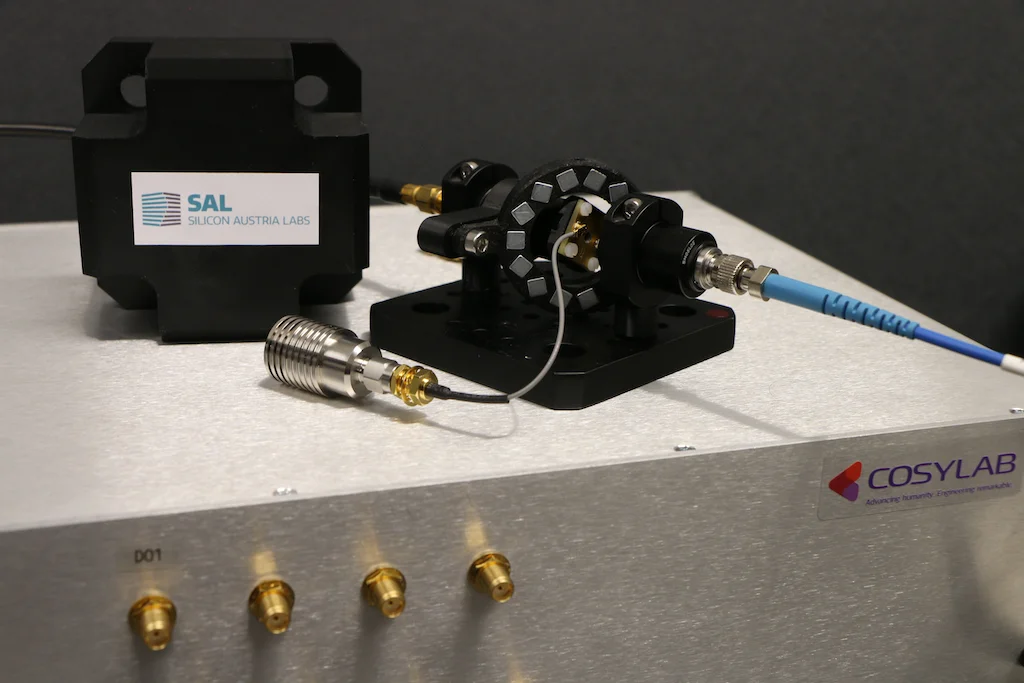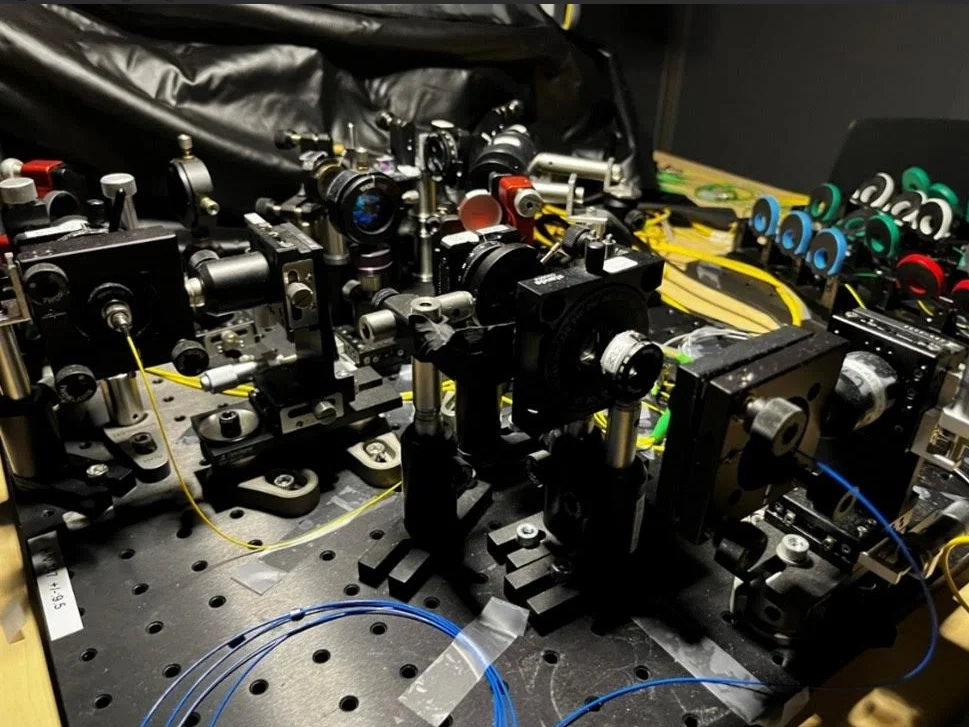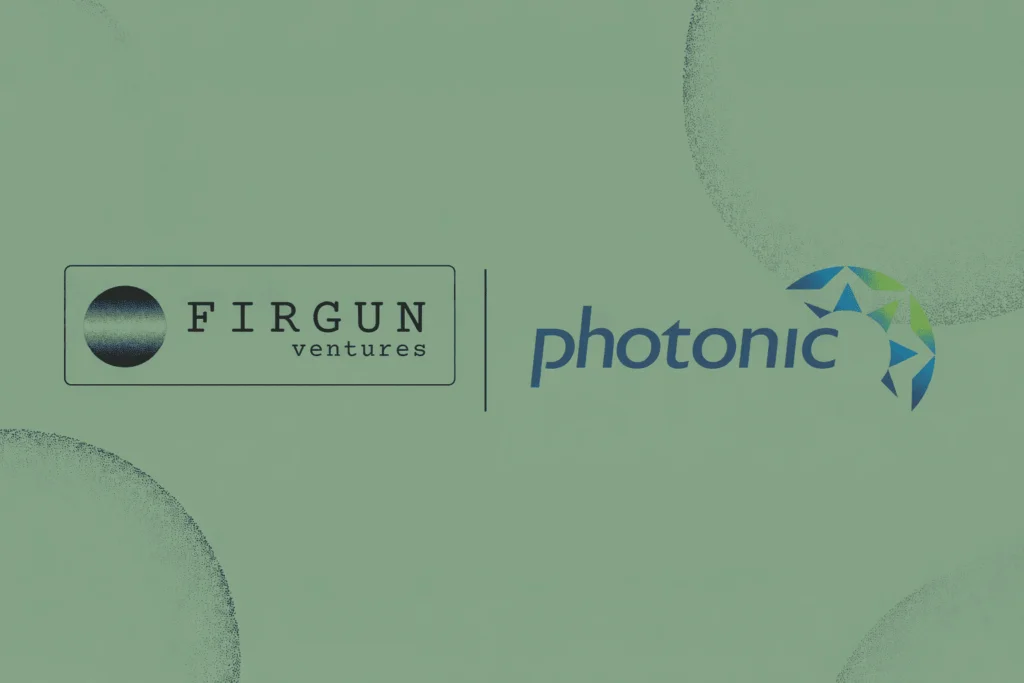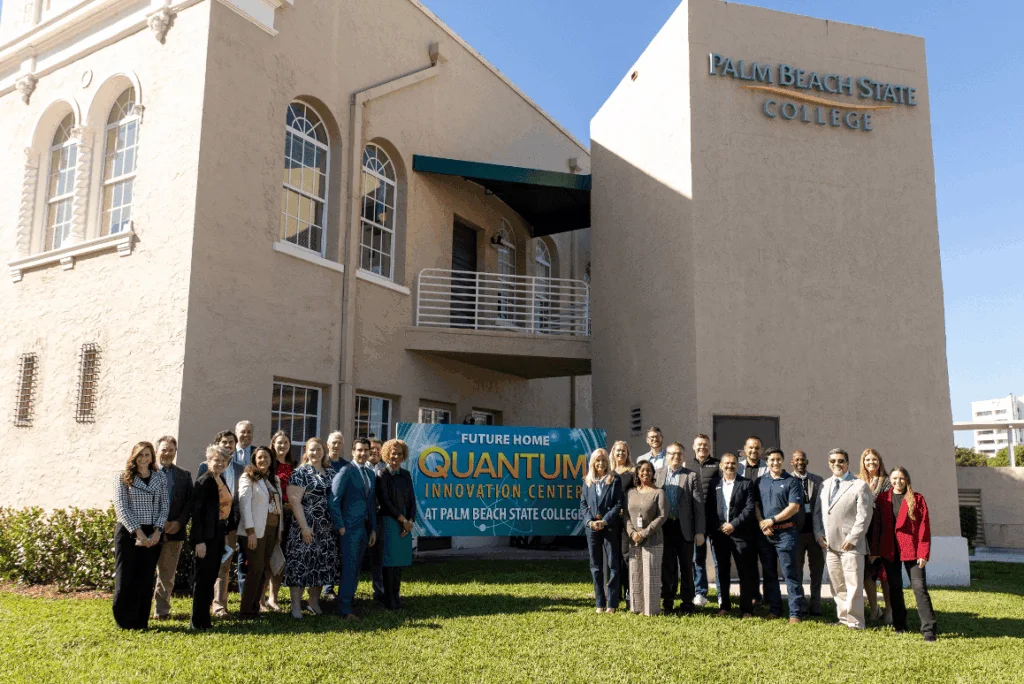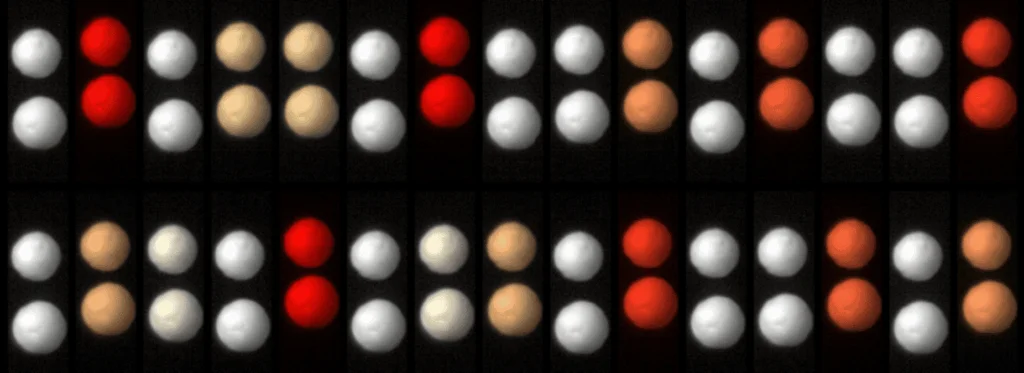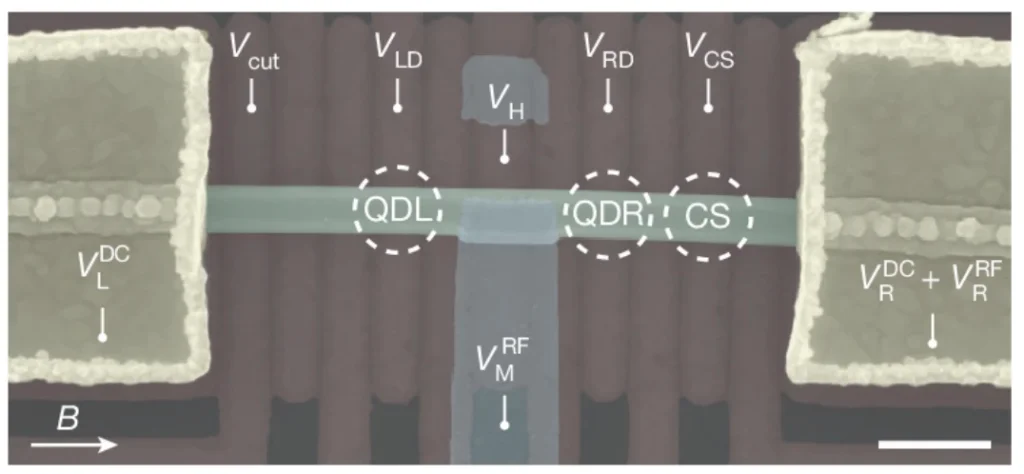Insider Brief
- Quantum Motion, a UK-based quantum computing firm, has expanded into Australia, aiming to leverage local talent and establish its silicon-based quantum technology at Sydney’s Cicada Innovations incubator, with support from Austrade.
- Austrade has facilitated Quantum Motion’s Australian entry by offering local expertise, tailored insights, and connections with the New South Wales government.
- The company’s silicon-based approach, which utilizes existing chip manufacturing infrastructure, aligns with Australia’s 2023 National Quantum Strategy, supporting applications in personalized medicine, material science, and climate modeling.
- Image: Left to right: Senior Quantum Engineer Felix von Horstig, Lead Quantum Engineer Mark Johnson, CEO Dr James Palles-Dimmock and Quantum Engineer Haider Zulfiqar at the opening of Quantum Motion’s R&D lab in Sydney. (Credit Austrade)
Quantum Motion, a UK-based quantum computing firm, has expanded into Australia, aiming to harness the region’s talent and support its silicon-based approach to quantum computing, according to Austrade, Australia’s trade and investment agency. The company’s focus on silicon chip technology for quantum computing is expected to facilitate scalability, addressing one of the industry’s most significant challenges.
Quantum Motion’s move into Sydney’s Cicada Innovations, a prominent deep tech incubator, represents a multimillion-pound investment that not only underscores Australia’s growing role in quantum research but also positions Quantum Motion to collaborate with local universities and researchers, the agency reports.
“Australia is an exciting place for the technology sector,” Mark Johnson, Quantum Motion’s Lead Quantum Engineer in Australia, told Austrade. “We are looking forward to being part of the growing quantum sector network around Sydney and helping to develop that.”

Quantum Motion’s development of silicon-based quantum chips offers potential cost and scalability advantages because it can use existing chip manufacturing infrastructure, according to Austrade. This approach contrasts with many quantum processors that require entirely new materials and cooling technology to maintain stability at near absolute zero temperatures. Quantum Motion’s silicon qubit technology could reduce operational complexities and costs, as conventional electronics can integrate more seamlessly at the ultra-low temperatures required for qubit stability.
The firm’s focus on silicon also aligns with Australia’s broader National Quantum Strategy, introduced in 2023, which emphasizes investment in research, development, and commercialization, infrastructure security and workforce growth in the quantum sector. This strategy offers companies like Quantum Motion a favorable landscape to advance quantum computing applications in fields such as personalized medicine, material science and climate modeling, the trade agency reports.
James Palles-Dimmock, Quantum Motion’s CEO, identifies talent as a critical factor in driving quantum computing progress and cited the strength of Australia’s talent pool as a significant draw.
“In short – you can’t do innovation without talent,” Palles-Dimmock told Austrade. He noted that at one point, over 60% of Quantum Motion’s quantum hardware team originated from Sydney, a good indication of Australia’s well-established talent pipeline.
Quantum Motion’s connection to Australia’s quantum ecosystem extends beyond recruitment. The company has joined the Sydney Quantum Academy, a key institution in nurturing quantum skills, and is in discussions with Australian universities to create pathways for students specializing in quantum technology.
These collaborations aim to build a skilled workforce that includes not only PhDs but also engineers and technicians with a range of transferable skills critical to the sector’s growth, according to Palles-Dimmock.
“There’s been a bit of mystique about quantum computing,” Palles-Dimmock told Austrade. “For the sector to develop, we will need a massive range of skills such as software engineers and electronics technicians. We don’t just need PhDs. I don’t think people realise they have all the transferable skills we are looking for. Other technical skills are growing up around the quantum centre, which makes it useful for us to be there, too.”
Austrade’s Role in Developing Quantum in Australia
Austrade has played an important role supporting Quantum Motion’s Australian expansion, according to Quantum Motion’s executive team. The agency offered the companyt insights, expertise, and facilitated connections, including introductions to the New South Wales government, according to David Fisken, Austrade’s Investment Director for the UK and Ireland.
That support and those introductions helped the company navigate the unknown-unknowns of operating in a new ecosystem, Palles-Dimmock told Austrade.
“Austrade’s support and insights are invaluable in highlighting some of those opportunities that we might not be aware of,” said Palles-Dimmock. “Then we can make sure we are talking to the right people at the right time.”
Fisken said the trade agency’s foreign direct investment attraction services supported Quantum Motion when it entered the Australian market and plans to continue support as the company expands.
“We provided in-country expertise, tailored sector information, referrals and introductions including to the New South Wales Government,” Fisken told Austrade. “We have been pleased to assist and look forward to continuing to support the business maximise the benefits of its investment in Australia. These include increased talent mobility and innovation exchange opportunities from the Australia-UK Free Trade Agreement.”








